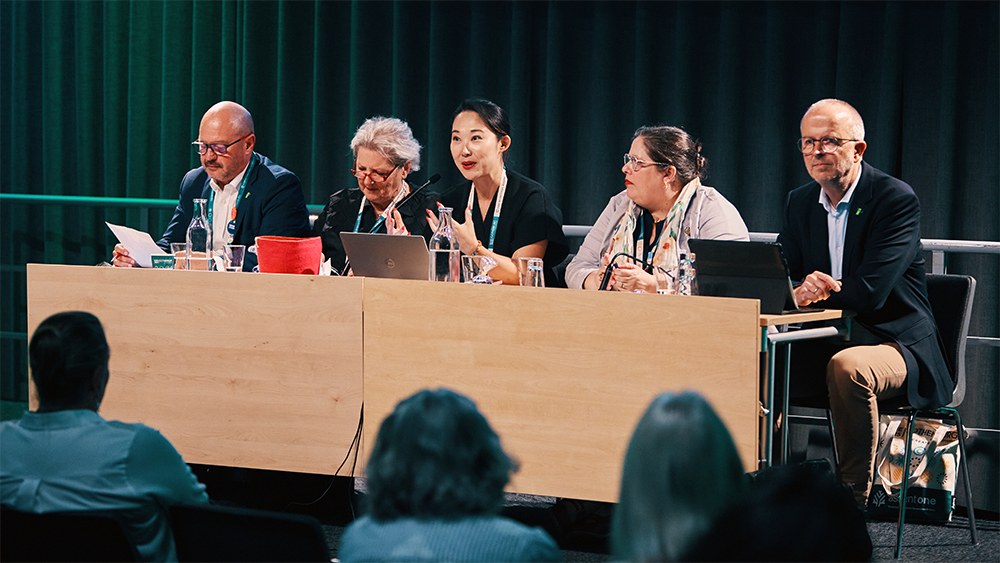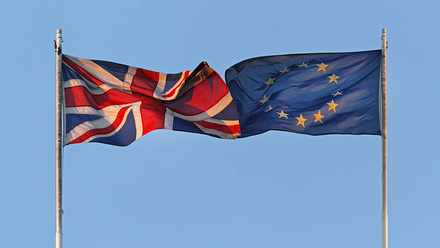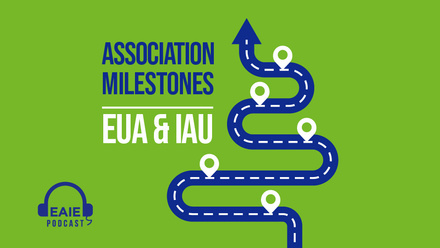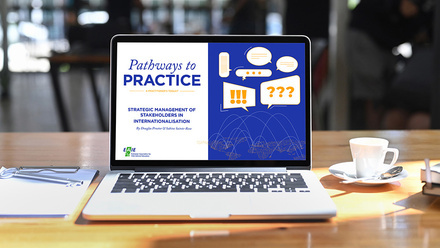Europe’s higher education: Already great and getting greater

The 2025 EAIE Conference and Exhibition in Gothenburg brought together more than 7,000 colleagues from across the world under the theme GO-Create. It was a reminder of the power of our international education community when it comes together with energy, purpose and ambition. Over four days, we experienced the full spectrum of internationalisation in action: high-level plenaries, practical workshops, spontaneous conversations and the buzz of genuine exchange.
Amongst these many highlights, the annual EAIE debate was a notable feature. This year’s motion—"Make European higher education great again"—immediately set the tone for a lively and, at times, provocative exchange.
The debate: Europe’s future in the spotlight
Brilliantly moderated by Ellen Wang (Leeds University Business School, UK), the debate pitted two teams against each other in quick-fire three-minute interventions:
- Pro team: Robert Buttery (FHNW, Switzerland) and Elspeth Jones (Leeds Beckett University, UK)
- Con team: Soledad Zapiola (Universidad de San Andrés, Argentina) and Herwig Damon (Universität St. Gallen, Switzerland)
The fast-paced format left little room for hedging: arguments had to be sharp, positions clear. What emerged was less about nostalgia or slogans and more about what Europe needs: continuity, openness and ambition.
For me, the key takeaway was simple: Europe doesn’t need to be "made great again". It needs to remain great, and to become greater still. That means focusing on people, partnerships and purpose: empowering our students, sustaining our networks and aligning innovation with societal needs.
What emerged was less about nostalgia or slogans and more about what Europe needs: continuity, openness and ambition.
From debate to broader conference reflections
What made the debate so powerful was how it resonated with the wider themes running through EAIE 2025:
- Plenaries with purpose: From Andreas Ekström’s call to critically examine the power of tech giants to Melati Wijsen’s youthful activism and vision for bold change, the plenaries challenged us to think about higher education’s responsibility in shaping society’s future.
- Alliances and co-creation: Sessions on European University Alliances, COIL and BIPs underlined that co-creation is more than a buzzword—it is becoming the structural foundation of our future collaborations.
- Challenges we share: Affordability of student housing, funding pressures and knowledge security were recurring concerns. These issues directly affect our mobility programmes, the well-being of our students and the viability of long-term partnerships.
- Community in action: Beyond the sessions, the conference was also about connections- from the opening reception at Liseberg, to midsummer-themed evenings, to the EAIE Choir closing with both song and reflection. These moments reminded us that internationalisation is also about belonging.
The debate captured these currents in microcosm: the clash of ideas, the testing of assumptions and the search for a way forward that respects both Europe’s diversity and its shared ambitions.
Moving forward
Walking away from Gothenburg, I felt that the real strength of this year's conference lay not in one session alone but in how the different pieces connected: debate, plenaries, workshops and the countless informal exchanges that give conferences their true value.
As international educators, we carry these discussions back to our institutions, our students and our partners. For our institutions, this means continuing to invest in people, nurture strategic partnerships and ensure that our internationalisation efforts are firmly aligned with purpose and societal relevance.
Europe does not need to look backwards. Our mission is to ensure it remains open, resilient, ambitious and, above all, that it continues to get greater.
As international educators, we carry these discussions back to our institutions, our students and our partners. For our institutions, this means continuing to invest in people, nurture strategic partnerships and ensure that our internationalisation efforts are firmly aligned with purpose and societal relevance.






